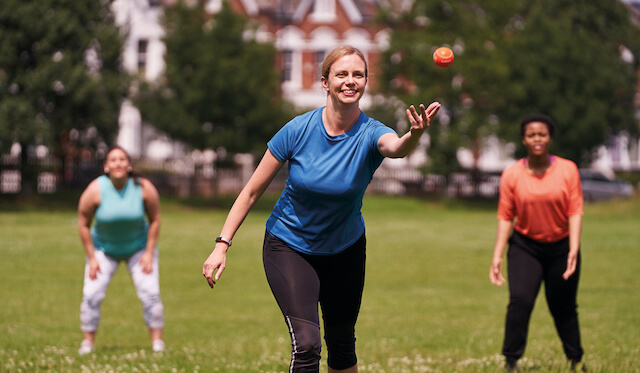
Life just gets in the way, doesn't it? One minute you're enthusiastically pursuing a hobby, whether it's cycling the scenic routes, hitting the local netball courts, or perfecting your yoga poses. The next, weeks, months, or even years have flown by, and that beloved activity has taken a back seat. Don't worry, you're not alone. The good news is, with the days getting longer and the weather warming up, there's no better time to dust off that dormant passion and reap the rewards for your mind and body.
Why Spring is the Perfect Time to Re-Engage
The days are getting longer, the air feels a little lighter, and the sun is finally peeking through. If you've been feeling that itch to get back outside after a long winter, you're not alone. Spring has a way of bringing a fresh burst of energy, making it the perfect time to get moving again. The outdoors is calling, and activities that might have felt too cold or dark during winter are now inviting and accessible.
Why We Stop Our Hobbies
Understanding why we stop can be the first step to starting again. Common reasons include:
- Time Constraints: Work, family commitments, and other responsibilities often push hobbies down the priority list.
- Lack of Motivation: Sometimes the initial spark fades, or we feel overwhelmed by the thought of catching up.
- Injury or Illness: Physical limitations can force a temporary (or longer) hiatus.
- Life Changes: Moving house, changing jobs, or other significant life events can disrupt routines.
The Science-Backed Benefits of Re-Engagement
Getting back into a hobby isn't just about fun; it's genuinely good for you!
- Boosts Mental Health: Engaging in activities
we enjoy can significantly reduce stress and improve our mood. A
study published in the Journal of Leisure Research
found that leisure activities can buffer against the negative
effects of stress and can enhance psychological well-being. When
you're absorbed in a hobby, your mind gets a break from daily
worries.
- Enhances Cognitive Function: Learning new
skills or revisiting old ones keeps your brain active. Whether
it's strategising in a social sport or problem-solving in a
craft, hobbies challenge your cognitive abilities. Research
often highlights how mentally stimulating activities can help
maintain brain health as we age.
- Improves Physical Health: If your hobby is
physical, like rejoining a walking group around the Mullum
Mullum Creek Trail or signing up for a local fitness class, the
benefits are obvious. Regular physical activity is crucial for
cardiovascular health, strength, and flexibility, as recommended
by health organisations like the Australian Department of Health
and Aged Care. Even less strenuous hobbies, like gardening,
involve movement and can contribute to overall fitness.
- Strengthens Social Connections: Many hobbies are social. Getting back into a team sport or a group fitness class in Mitcham can reconnect you with existing friends and open doors to new friendships. Social interaction is vital for well-being, combating loneliness, and providing a sense of community. The Mental Health Foundation in the UK emphasises the importance of strong social relationships for good mental health.
Practical Steps to Get Back into the Swing This Spring
Ready to revive that dormant passion? Here's how to make the most of the season:
- Start Small and Be Patient: Don't expect to
pick up exactly where you left off. If you're getting back into
running, begin with shorter distances or walking intervals. For
a craft, try a simpler project. "Gradual progression is key to
avoiding burnout and injury," advises exercise physiologist Dr.
John Smith in a recent health article. Celebrate small
victories.
- Set Realistic Goals: Instead of aiming for
perfection, focus on consistency. Maybe it's committing to one
yoga session a week, or attending a social badminton game every
fortnight. Achievable goals build momentum and confidence.
- Find Your Tribe (Again): Reconnect with old
hobby friends or seek out new groups. With the weather
improving, more social clubs and community groups are active.
Having others to share the experience with can be a huge
motivator. Check out local community centres, sports clubs, or
online forums to find groups near you. Here in Mitcham, there
are various local sports clubs and community groups that are
always welcoming new members.
- Schedule It In: Treat your hobby like any
other important appointment. Block out time in your calendar and
stick to it. This mental commitment can make all the difference,
especially with the longer daylight hours.
- Reflect on Your "Why": Remind yourself why
you loved this hobby in the first place. Was it the feeling of
accomplishment, the stress relief, the social aspect, or the
pure joy? Tapping into that original motivation can reignite
your enthusiasm.
- Be Kind to Yourself: There might be days when you just don't feel like it, and that's okay. Don't let one missed session derail your entire effort. Forgive yourself and get back to it when you can.
Getting back into a hobby after a break is a journey, not a sprint. Embrace the process, enjoy the rediscovered joy of being outdoors, and reap the incredible benefits for your mind, body, and soul. What hobby will you be dusting off this spring?
References:
- Pressman, S. D., Matthews, K. A., Cohen, S., Martire, L. M., Scheier, M., Baum, A., & Schulz, R. (2009). Association of enjoyable leisure activities with psychological and physical well-being. Psychosomatic Medicine, 71(7), 725-732.
- Trepte, S., & Brandstätter, M. (2016). Leisure activities and psychological well-being. Journal of Leisure Research, 48(2), 127-147.
- Australian Department of Health and Aged Care. (n.d.). Physical Activity and Exercise Guidelines.
- Change Mental Health. (n.d.). Relationships and Mental Health.






